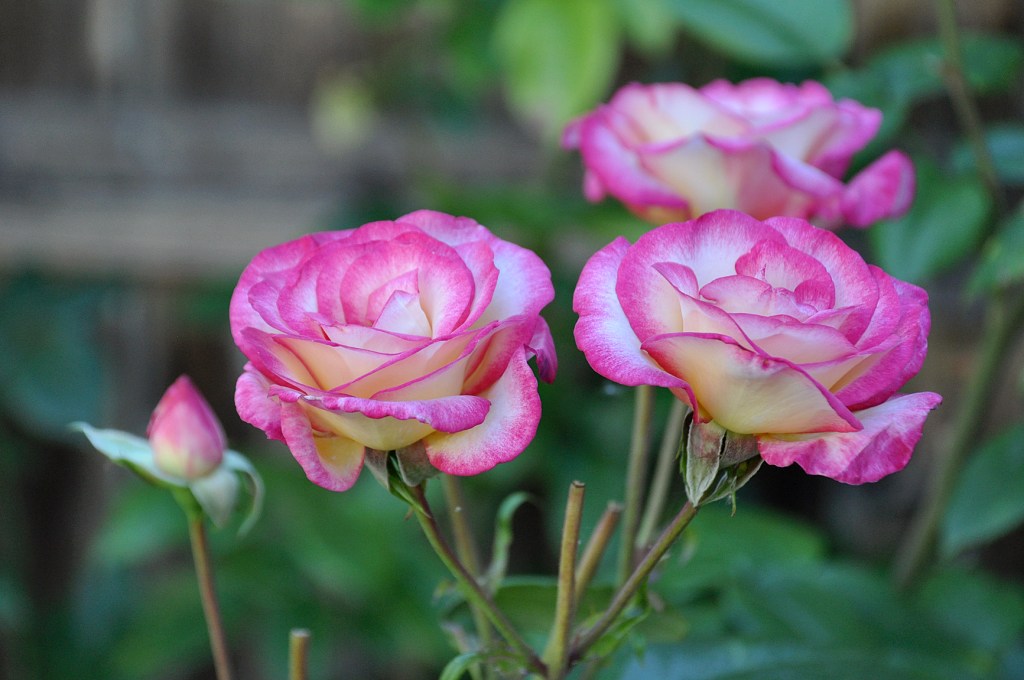Rural Roots and Urban Flowers
Published 9:42 am Friday, June 7, 2019

- TOO roses
Two years ago I was covering an ag technology conference in Pendleton and was surprised to run into the publisher of Willamette Week, the Portland alternative paper. WW wouldn’t normally be considered an ally of conventional agriculture, but the publisher was there with eyes open, and I was glad to see him.
He asked me an interesting question: What was the most important thing people should know about Oregon agriculture. I had to think for a minute, because I knew he was serious.
I told him this: Oregon’s farmers and ranchers are the first line of defense against environmental degradation.
And I’ll add this now: Most of them take soil and water protection more seriously than people in Portland, Eugene and Salem might assume. They take it seriously because they live there.
I would tell him this, too: Oregon’s farmers and ranchers also are the first line of defense against the land-use mistakes – urban sprawl – we’ve seen ruin wonderful rural areas and farmground elsewhere.
And this: Oregon’s rural people most commonly and most closely interact with the wildlife we all cherish. They have wolves, cougars, deer, elk, bears, birds, fish and more on their land. Some of those animals damage crops or kill livestock. Public policy regarding wildlife management must take rural landowners’ economic interest into balance.
The people out there aren’t hayseeds. As a group, people involved in Oregon agriculture are the smartest and most capable I covered in 37 years of Oregon journalism. Among other things, they are early adopters of technology.
And finally this: Rural areas feed us. Food security should be a matter of national security.
Of course we are part of a global food chain. That’s why we enjoy oranges and bananas in our Oregon grocery stores all year long. You know that.
But in a volatile world, a nation that cannot feed itself seems vulnerable. There is something unsettling, not to mention unsustainable, about relying on others far away to grow, process and ship the food we eat.
You can go to the grocery store and pick up a can of tuna that says Bumble Bee but came from Poland. You can pick up a can of mandarin oranges that says Del Monte but came from China. That plastic wrapped beef pack is from New Zealand. The fish is from Thailand. All of it is cheap.
Is that what we want? Is that who we trust to feed us?
It goes both ways. You know what millions of people in other countries trust? Food from Oregon. Our reputation for quality and safety gives us an edge.
Here’s the thing: The people who grow our food, host our wildlife and inhabit our stunning landscape must be allowed to prosper. They deserve educational, water, energy, medical, transportation and technology infrastructure that is cutting edge. There should not be, in 2019, a spot in this state where cell service dies.
I grew up amid the orchards, creeks, pastures and meandering country roads of Hood River and Mosier, but I jumped to Eugene, then Portland, to make a living. I don’t look back too often. For my family, Portland has been a great place to live and work.
I believe having rural roots and urban flowers provides valuable perspective. Over the latter part of my journalism career, I often told people that I saw my job as explaining Oregon agriculture to a Portland audience.
I tell people now that a healthy rural economy is critical If we want to maintain the Oregon many of us grew up with and that still draws visitors and seekers.
The people who choose to live outside of the Willamette Valley’s cities have to be able to make a living. It is in everyone’s interest that the people living and working on the state’s farming, ranching, natural resource, wildlife and recreation land are allowed to thrive.
That’s what I tell people in Portland these days. If rural areas thrive, we’re all better off.
Eric Mortenson is a Portland writer. He retired from daily journalism in 2017 after working 37 years at Oregon newspapers, including the Capital Press, The Oregonian, and the Eugene Register-Guard. Contact him at ecmortenson@gmail.com

